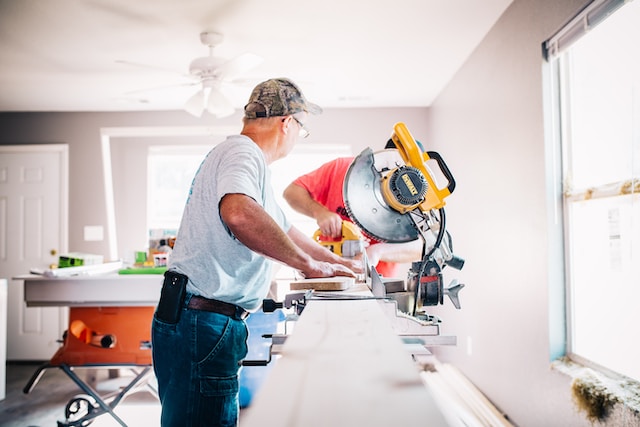In the bustling landscapes of cities and the serene countryside, there exists a group of professionals who silently ensure the heartbeat of modern society – electricians. These skilled individuals are the architects of our electrical infrastructure, meticulously wiring our homes, businesses, and industries to keep them illuminated and powered. In this comprehensive article, we’ll delve into the world of electricians, exploring their vital role, training, skills, career prospects, and the ever-evolving nature of electrical work in the 21st century.
The Crucial Role of Electricians:

Electricians are the backbone of our modern world, responsible for designing, installing, maintaining, and repairing electrical systems. From the moment we flip a light switch to the operation of complex machinery in factories, electricians ensure that electricity flows reliably and safely to power our daily lives.
In residential settings, electricians wire homes, install lighting fixtures, outlets, and circuit breakers, and troubleshoot electrical issues to ensure the safety and functionality of electrical systems. In commercial and industrial environments, their work encompasses a broader spectrum, including wiring for office buildings, factories, warehouses, hospitals, and other facilities, as well as maintaining and repairing complex electrical machinery and equipment.
Skills and Training:
Becoming an electrician requires a combination of technical skills, practical experience, and formal education. Many electricians start their journey through apprenticeship programs, which typically last four to five years. During this time, apprentices work under the guidance of experienced electricians, gaining hands-on experience and learning the intricacies of the trade.
Apprenticeship programs provide a blend of classroom instruction and on-the-job training, covering topics such as electrical theory, blueprint reading, wiring techniques, safety protocols, and local electrical codes and regulations. This comprehensive training equips electricians with the knowledge and skills needed to tackle a wide range of electrical tasks safely and effectively.
In addition to apprenticeship programs, some electricians pursue formal education through vocational schools, community colleges, or trade schools, where they can earn degrees or certifications in electrical technology. These programs offer specialized training in electrical theory, practical skills development, and preparation for licensure or certification exams.
Key Skills for Electricians:
- Technical Proficiency: Electricians must possess a strong understanding of electrical principles, circuits, systems, and components. They should be proficient in reading blueprints, schematics, and technical diagrams to plan and execute electrical installations effectively.
- Problem-Solving Abilities: Electrical work often involves troubleshooting complex issues and diagnosing problems. Electricians must have excellent problem-solving skills to identify the root cause of electrical issues and implement appropriate solutions.
- Attention to Detail: Precision and attention to detail are paramount in electrical work, as even small errors can have significant consequences. Electricians must meticulously follow safety protocols, wiring diagrams, and building codes to ensure the safety and reliability of electrical installations.
- Safety Awareness: Safety is a top priority in electrical work, given the inherent hazards associated with working with electricity. Electricians must be well-versed in safety protocols, practices, and regulations to prevent accidents, injuries, and electrical hazards.
Career Opportunities:
Electricians have diverse career opportunities available to them across various industries and sectors. Some common career paths for electricians include:
- Residential Electrician: Residential electricians specialize in electrical work for homes, apartments, and other residential properties. They install wiring, lighting fixtures, outlets, and circuit breakers, as well as troubleshoot electrical issues and perform electrical upgrades and renovations.
- Commercial Electrician: Commercial electricians focus on electrical installations and maintenance for commercial buildings, offices, retail stores, and other non-residential properties. They may work on projects ranging from wiring and lighting installations to power distribution and electrical system upgrades.
- Industrial Electrician: Industrial electricians work in industrial settings such as factories, manufacturing plants, and warehouses. They are responsible for maintaining and repairing heavy-duty electrical machinery, equipment, and systems, as well as troubleshooting electrical issues to minimize downtime and ensure operational efficiency.
- Maintenance Electrician: Maintenance electricians specialize in troubleshooting and repairing electrical issues in various settings, including residential, commercial, and industrial facilities. They perform routine inspections, diagnose electrical problems, and implement corrective measures to ensure the reliability and safety of electrical systems.
The Future of Electrical Work:
The field of electrical work is constantly evolving, driven by advancements in technology, changes in regulations, and emerging trends. Electricians must stay updated on the latest developments in the industry to remain competitive and adapt to new challenges and opportunities.
One significant trend shaping the future of electrical work is the increasing emphasis on energy efficiency and sustainability. With growing concerns about climate change and environmental impact, there is a growing demand for energy-efficient electrical systems, renewable energy sources, and green building practices. Electricians with expertise in energy-efficient technologies and renewable energy systems are well-positioned to capitalize on these trends and play a key role in building a more sustainable future.
Another emerging trend is the integration of smart technology and automation into electrical systems. Smart homes, smart buildings, and Internet of Things (IoT) devices are becoming increasingly prevalent, requiring electricians to adapt to new technologies and learn how to install, configure, and maintain connected electrical systems.
Electricians are indispensable professionals who play a vital role in powering our modern world. With their skills, training, and dedication to safety, electricians ensure that our homes, businesses, and industries have access to safe, reliable, and efficient electrical power. Whether it’s wiring a new home, maintaining industrial machinery, or embracing emerging technologies, electricians are the unsung heroes behind the scenes, driving progress and innovation in the field of electrical work. As we look to the future, electricians will continue to be at the forefront of shaping our electrical infrastructure and empowering communities around the globe.
Electricians are skilled professionals who play a crucial role in ensuring that our homes, businesses, and communities have access to safe and reliable electrical power. From installing wiring and fixtures to troubleshooting complex electrical issues, electricians possess the expertise and training necessary to keep the lights on and the power flowing. In this article, we will explore the important work of electricians, their training and skills, as well as the diverse career opportunities available in this field.
The Role of an Electrician:
Electricians are responsible for installing, maintaining, and repairing electrical systems in a variety of settings. Whether it’s wiring a new construction project, upgrading electrical panels, or troubleshooting electrical problems, electricians are essential to ensuring the safe and efficient flow of electricity. Their work encompasses a wide range of tasks, including:
- Installation: Electricians install wiring, lighting fixtures, electrical outlets, circuit breakers, and other components of electrical systems in homes, commercial buildings, and industrial facilities.
- Maintenance: Electricians perform routine maintenance tasks to ensure that electrical systems are operating safely and efficiently. This includes inspecting wiring, testing circuits, and replacing worn-out components.
- Repair: When electrical systems malfunction or fail, electricians are called upon to diagnose and repair the problem. This may involve replacing faulty wiring, repairing damaged circuits, or troubleshooting complex electrical issues.
- Safety: Electricians prioritize safety in all aspects of their work. They adhere to strict safety protocols and regulations to prevent accidents, injuries, and electrical hazards.
Skills and Training:
Becoming an electrician requires a combination of technical skills, practical experience, and formal education. Most electricians start their careers by completing an apprenticeship program, which typically lasts four to five years. During this time, apprentices work under the supervision of experienced electricians, gaining hands-on experience and learning the skills necessary to become proficient in the trade.
In addition to apprenticeship programs, many electricians pursue formal education through vocational schools or community colleges. These programs offer courses in electrical theory, blueprint reading, electrical code regulations, and safety practices. Upon completion of their training, electricians may obtain certification or licensure, depending on the requirements of their state or jurisdiction.
Key skills for electricians include:
- Technical Proficiency: Electricians must have a solid understanding of electrical principles, circuits, and systems. They should be able to read blueprints, schematics, and technical diagrams accurately.
- Problem-Solving Skills: Electrical work often involves troubleshooting complex issues and finding creative solutions to problems. Electricians must possess strong problem-solving skills to diagnose and resolve electrical problems effectively.
- Attention to Detail: Precision and attention to detail are essential qualities for electricians, as even small mistakes can have significant consequences in electrical work.
- Safety Awareness: Electrical work can be hazardous, so electricians must prioritize safety at all times. They should be knowledgeable about safety protocols, regulations, and best practices to prevent accidents and injuries.
Career Opportunities:
Electricians have a wide range of career opportunities available to them, spanning various industries and sectors. Some common career paths for electricians include:
- Residential Electrician: Residential electricians specialize in installing, repairing, and maintaining electrical systems in homes and apartments. They may work on new construction projects, remodels, or electrical upgrades for existing homes.
- Commercial Electrician: Commercial electricians focus on electrical work for commercial buildings, offices, retail stores, and other non-residential properties. They may be involved in wiring, lighting, power distribution, and other electrical systems.
- Industrial Electrician: Industrial electricians work in industrial settings such as factories, manufacturing plants, and warehouses. They are responsible for maintaining and repairing heavy-duty electrical equipment, machinery, and systems.
- Maintenance Electrician: Maintenance electricians specialize in troubleshooting and repairing electrical issues in various settings, including residential, commercial, and industrial facilities. They perform routine inspections, identify problems, and implement corrective measures to ensure the reliability and safety of electrical systems.

